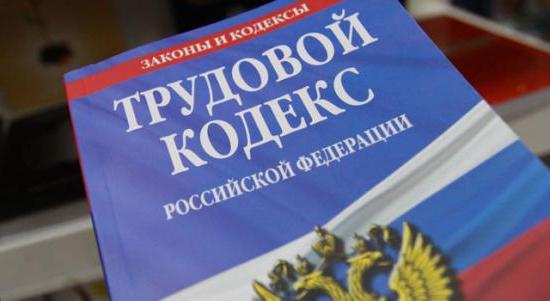So, today we will be interested in the principle of remuneration on non-working holidays as well as on weekends. After all, no one will just begin to work hard when everyone has the right to rest. And, therefore, you need to somehow reward employees. This is written in Art. 153 (Labor Code of the Russian Federation). It is he who will help us to understand today's issue. In general, remuneration is a difficult moment. And it requires certain knowledge of employees so that they do not turn out to be cheated. Yes, in Russia the norms provided for in Art. 153 RF TC. But they do have a place. And conscientious organizations will never go against the rules.
From payment and activity
The thing is that the main feature of payment on non-working, holidays, as well as weekends is the dependence of accurate calculations on how exactly you are paid. That is, this factor will have to pay special attention. You can’t just take it and say how exactly the salary for the days worked will be given to you. It will be necessary to consider several factors.
The second point is your activity. In some cases, according to Art. 153 of the Labor Code, payment of non-working days and days off, in general, is not allocated. Either it is not compensated, or it has some features. So again, quickly drawing a conclusion about the amount that is due to you will not be so simple. But if you carefully study the paragraphs of Art. 153, you can get answers to all questions. What is it necessary to prepare for?
Typical case
For example, to the most common scenario. The thing is that according to Art. 125 Labor Code of the Russian Federation, payment of holidays, as well as holidays, is made in double size. That is, if you, for several reasons, went to work when you are not supposed to, you can demand double wages. Of course, only for those days that you worked on holidays and weekends. And the rest of the time is paid according to the usual scheme. That is what the modern legislation of the Russian Federation says. True, the law has certain features. Everyone needs to know about them.
Makers
For example, you can often find piecework wages. For such workers, their own payment rules are also provided. They, as you might guess, are not much different from the generally accepted norm.
So, if you believe the text of Art. 153 of the Labor Code of the Russian Federation (with or without comments), then the contractor also receives double wages. More precisely, it is charged at a double rate. This method is also called piecework double rate. If you are offered a job on a weekend or holiday at the usual tariffication, you have every right to refuse it. This is a direct violation of your rights.
Day and time
What if the calculations use only daily and hourly rates? Everything is also easy and simple. If you look at the text of our article today, you can see what is written there regarding this issue.
Employees who work at daily or hourly rates should receive at least twice the salary for the hours worked on a weekend or holiday. It is quite possible to earn more, and less - this, again, is a direct violation of the rights and the Labor Code of the Russian Federation. You can demand that holidays and weekends be paid at least at double rates. And it doesn’t matter whether they are daily or hourly.

During processing
It often turns out that work on holidays and weekends is a recycling. Such work should also be paid with dignity. And not only in the form of a salary. This process has its own characteristics.And they, of course, are spelled out in Art. 153 (Labor Code of the Russian Federation).
The thing is that employees who remain at work on weekends and holidays should not only receive double wages. When it comes to refining, they are necessarily paid a double salary over the main. Depending on which calculation you have - hourly or daily, the amount will vary. Many citizens note that sometimes paying by the hour is much more profitable than by the day. But this is not written in the laws.
Culture and Media
Well, special attention should be paid to citizens who are engaged in the fields of cultural and organizational activities, as well as in the media and journalism. These people usually do not work as prescribed by the rules, but when necessary. As a matter of fact, their salary is also charged according to different principles. And wages on non-working days, as well as on holidays, have several features.
Firstly, as has already been said, all labor in our case today must be paid in double sizes. Just not always. Under certain circumstances, it is possible to increase several times.

Secondly, citizens who work at exhibitions, organize events, and also work in the media and journalism, usually pay special attention to a signed employment contract. And it is right. It is there that the basic norms that must be observed are prescribed. Payment on non-working holidays, as well as on weekends is included here. Just look what conditions have been established in a particular case. Hence the norms provided for by Art. 153 (Labor Code of the Russian Federation).
Contract
Another feature provided by our current law is, as in the past case, an employment contract. Often, it is there that the norms that are laid down for calculating wages on non-working days or holidays are prescribed.
It doesn’t matter whether the agreement is collective or not. The fact remains: all the rules that must be observed when calculating wages in a particular case are prescribed precisely in the contract. The main thing is to pay attention to the fact that on weekends and holidays you should in any case receive a salary of at least double size. If such a clause is not provided, consider the good faith of the employer. According to the current legislation of the Russian Federation, it is double pay that is set to a minimum for employees who work when they should not.
Output
Art. 153 of the Labor Code of the Russian Federation also provides for special cases. For example, how the employee’s labor will be paid if he wants to rest for the worked day at another time. There are other rules for this. They are extremely easy to understand.
After all, if an employee takes time off for a worked day off or holiday at a different period of time, he will not see any double salary. It turns out that the time will be paid only as it should be on a normal day. And the holiday is simply postponed for you. There will be a kind of replacement of one time period by another. And in this case you do not have the right to demand a double salary. Only if otherwise specified in the employment contract. In practice, there were almost no such cases.
Features
In 2016, some particularities became known in relation to specific workers. And they have now entered into legal force. Maybe it will still change, but so far there is no talk of it. For example, it is worth noting that employees who are involved in the preparation and organization of events for the World Cup in 2018 and the Confederations Cup in 2017 do not have any pay features on weekends and holidays (non-working days). That is, to them art. 153 has nothing to do.
What does it mean? Getting a salary will occur according to the usual principle, which is usually done. That is, a one-time size and nothing more.Only if the labor contract specifies the features of payroll, they will be respected. In principle, it is not yet known whether these standards will continue to apply. But for now, it is precisely on them that one should rely.
As you can see, Art. 153 of the Labor Code of the Russian Federation. Payment for holidays and weekends, according to her, has several features. But it still remains easy for citizens to understand. Remember the main rule - you have the right to a double salary if you do not want to replace the worked day with a weekend in another period of time. If your rights are violated, do not be afraid to file complaints. It’s not just that there are laws in the Russian Federation!








